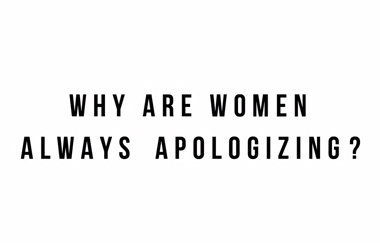

Why the Wedding Industry Needs More Pro-Women Ads
Now Pantene has joined the list of for-profit companies that are creating ads that not only empower women but address some very real inherent issues in female culture. Joining GoldieBlox, Aunt Flo, Verizon and Always, Pantene is tackling women’s overuse of the phrase, “I’m sorry.” It’s pretty amazing to see how Sheryl Sandberg’s #BanBossy Campaign has filtered down into other areas. After all the controversy it received, it’s clear that a lot of important people at big women-focused companies were all change, which is why we’re seeing so many of these types of ads. I don’t know about you, but I hope to see many more and in MEN’S advertising too!
How about seeing David’s Bridal jump on the word train and empower brides by showing that their value is not in declaring themselves, “Mr. and Mrs. Bob Smith”? Or showing an ad with same-sex couples? What if Vera Wang came out with one declaring the word, “perfect” as unhealthy for brides? Or what if a bank created an ad where women, through savvy savings and investments, can afford to pay for a date or be proud to be the breadwinner? What if De Beers, the inventor of the engagement ring, encouraged women to propose to men instead?
There’s very little distinction between wedding culture and consumer culture. Nowadays, they are almost one in the same. Which is why, I think it’s incredibly powerful that (some) companies are changing the way they target women. It’s a vast improvement over ads that over-sexualize, objectify and set unreasonable physical standards for women. While at the end of the day these ads are still trying to sell products and build brand loyalty, I would rather have for-profit companies creating positive and groundbreaking ads like the one below than not. There are other ways to reach women. To do so with gravitas and without cheap gimmicky sales tricks and with the perception that women should come first is really powerful. And they’re doing so at the risk, that some might not like hearing that their life and how they’re currently treated can be and should be better. Then ads are showing them how, but not through a product purchase! Women should not forget that these are still ads. Most ads of today and yesterday created a wealth of media-related social and health problems, these new wave of ads at least attempt to reverse that tide.
